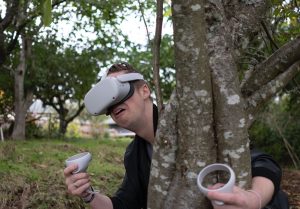Why We Need More Time in the Natural World
Newsweek · Feb 11, 2009
Featuring Peter Kahn, Nature and Health researcher and Steering Committee member
 Peter Kahn is one of a handful of environmental psychologists who have begun systematically exploring these questions. He and his colleagues at the University of Washington ran a series of experiments to see what benefit—if any—people get from high-quality technological versions of nature. In one experiment, for example, they installed plasma TV “windows” in workers’ otherwise windowless offices for a period of 16 weeks, and then took various measures of psychological function. They found that those with the “views” of parkland and mountain ranges had a greater sense of well-being, clearer thinking, and a greater sense of connection to the natural world.
Peter Kahn is one of a handful of environmental psychologists who have begun systematically exploring these questions. He and his colleagues at the University of Washington ran a series of experiments to see what benefit—if any—people get from high-quality technological versions of nature. In one experiment, for example, they installed plasma TV “windows” in workers’ otherwise windowless offices for a period of 16 weeks, and then took various measures of psychological function. They found that those with the “views” of parkland and mountain ranges had a greater sense of well-being, clearer thinking, and a greater sense of connection to the natural world.
All that means, of course, is that HDTV is better than a blank wall. To see if the televised version stacks up against the real thing, Kahn ran another experiment in which some office workers had an actual view of a natural setting through a window—the old-fashioned glass kind—while others got the plasma version and still others the blank wall. They exposed all the workers to low levels of stress, but enough to make their heart rate go up; then waited to see how long it took them to calm down.